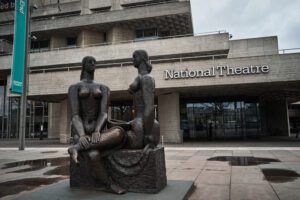More than 2,500 leading voices from the UK’s arts sector, including the heads of the National Theatre and Royal Shakespeare Company, have signed an open letter warning that Labour’s proposed changes to the Access to Work scheme risk excluding disabled people from the workforce entirely.
Indhu Rubasingham, artistic director of the National Theatre, and Tamara Harvey and Daniel Evans, co-artistic directors of the RSC, were among the signatories to the letter, which accuses the government of jeopardising decades of progress on workplace inclusion. Addressed to the Department for Work and Pensions (DWP) and the Department for Culture, Media and Sport (DCMS), the letter warns that the reforms outlined in the Pathways to Work green paper could have a “devastating impact” on disabled employment rates, particularly in the cultural sector.
“We have worked for decades to ensure that the sector can provide better work for disabled people, and now the proposals threaten that progress,” the letter states. “There is a clear need to reform Access to Work, but this must be based on constructively supporting disabled people into meaningful work, not a cost-cutting exercise.”
The Access to Work scheme, administered by the DWP, offers financial support to help disabled people enter or stay in work. The grant can fund specialist equipment, transport, job coaches and interpreters—crucial adjustments that often exceed legal obligations placed on employers.
Recent reports suggest, however, that the scheme is already being quietly curtailed. Disability rights campaigner and comedian Jess Thom recently revealed that her Access to Work payments had been slashed by 61%, rendering her unable to continue her work.
Tom Ryalls, one of the letter’s organisers, said Thom’s experience and the current consultation process had prompted widespread concern. “There’s the consultation, but this is also about unspoken cuts that are already happening,” he told The Guardian.
Figures show that disabled people are underrepresented in the creative industries, where just under 15% of the workforce identify as disabled—compared with around 23% of the general working population. In organisations funded by Arts Council England, the figure is even lower, at just 9%.
The open letter calls on the government to halt any reforms until the Office for Budget Responsibility publishes its assessment, and urges ministers to protect and improve the Access to Work programme. It also demands assurances that no changes will undermine disabled people’s participation in cultural life, and calls for direct consultation with affected workers, especially disabled artists and cultural employees.
A government spokesperson responded: “We are determined to create a welfare system that helps people into work and out of poverty. Our welfare reforms include a £1bn-a-year package to support disabled people who can work into work, so they have fulfilling careers in the arts and other sectors.”
But campaigners argue that the rhetoric of opportunity must be matched by protections in practice. “The arts sector has led the way in creating more inclusive workplaces,” said one signatory. “These proposals risk reversing hard-won gains and excluding the very voices we need to hear.”
